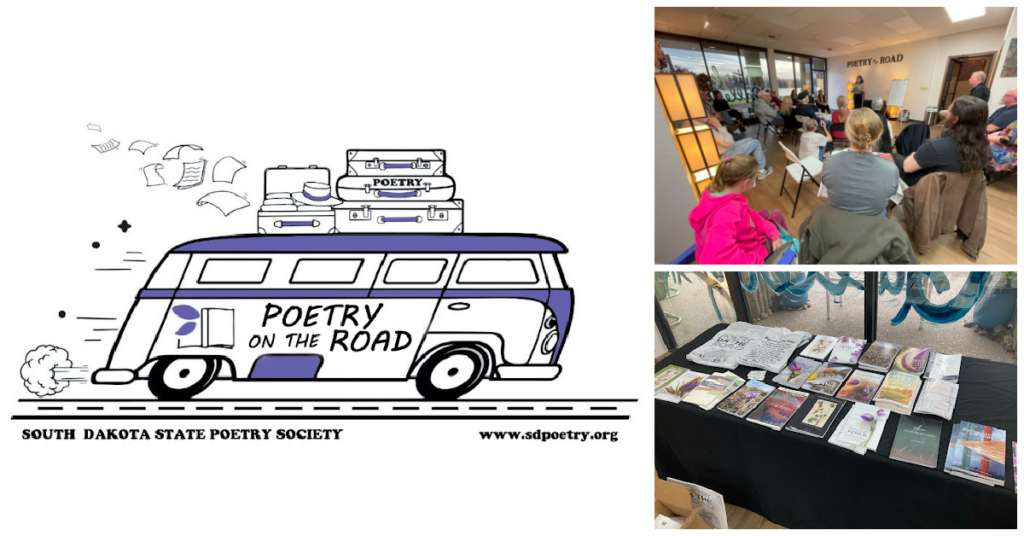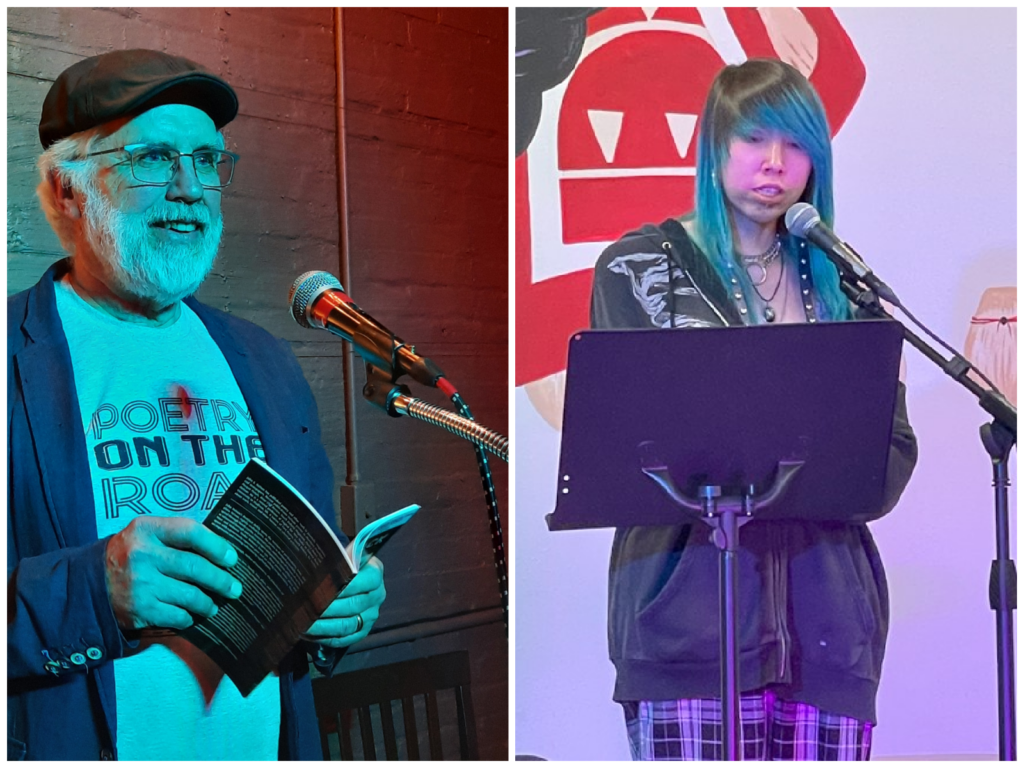SDSPS Brings Poetry to a Town Near You!
November 9, 2024

After a fruitful 17-stop journey in 2023-2024, the South Dakota State Poetry Society (SDSPS) kicked off a second edition of Poetry on the Road at the South Dakota Festival of Books, Sept. 20 in Brookings. With support from the South Dakota Humanities Council and a variety of local sponsors, they’ve planned an even bigger and better road trip for 2024-2025.
Poetry on the Road is a series of two-hour events held throughout the state to help foster the creation and appreciation of poetry. Over the next two weeks, readings will occur in three eastern South Dakota communities – Sioux Falls, Faulkton, and Aberdeen – with many more to follow in the new year.

Free and open to the public, each event features readings by the South Dakota Poet Laureate, Bruce Roseland, and other SDSPS member poets, as well as an open mic at which attendees can sign up to read their own original poems. All are welcome, whether to participate or just to listen.
Thus far, events have drawn audiences ranging from 12 to 85 people, with readers in their teens, their 90s, and every age in between, according to Marcella Remund, SDSPS President.
“Poetry on the Road has shown us that the diversity of poets, styles, and subjects reflects the amazing diversity in our state,” Remund said. “It is helping writers of all ages and walks of life learn from each other and grow as writers, and it’s providing opportunities for us to share and celebrate each other’s work.”
Poet Laureate Bruce Roseland agrees. He is especially pleased with the sense of community the project has fostered.
“I find it heartwarming to see folks get up and be seen and heard, many for the first time in public,” Roseland said. “It is wonderful and even surprising to see people who have been writing privately share their thoughts about what concerns them and what they value and find that others share these same concerns, values and, of course, joys found in life.”
As South Dakota poets, whether beginners or veterans, continue to share their work, Roseland believes Poetry on the Road will have long-lasting impacts on the state’s creative environment.
“As I frequently say, we make our own culture,” he said. “What I hope we continue to accomplish is growing this community. In a way, we can be thought of as Johnny Appleseed farmers. What is planted today shall bear fruit forward into many generations.”
Over the next two weeks, poets and poetry fans can participate in three events:
- Thursday, Nov. 14, 7 p.m., Full Circle Book Co-op, 123 W 10th St, Sioux Falls
- Monday, Nov. 18, 5 p.m. – Faulk County Library, 127 8th Ave S, Faulkton
- Thursday, Nov. 21, 6 p.m. – Red Rooster Coffee House, 218 S Main St, Aberdeen
After a break for the holiday season, Poetry on the Road will resume in January 2025 and continue through April. For more information and a complete event schedule, visit https://www.sdpoetry.org/events
Learn more about humanities programming in South Dakota by signing up for SDHC e-Updates!